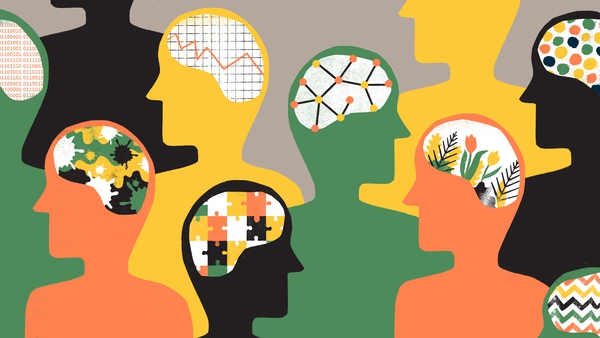Opinion: dyslexia affects one in 10 people but there are a lot of misconceptions about what it really means
We have all heard the word dyslexia and we also have our own ideas of what it is and how it can affect someone. These are often built through personal experiences of knowing people with it from our families and school and cultural perceptions developed within our environments. Often misconceptions are built around dyslexia, and this article will help to dispel some of these myths, such as: is it related to intelligence, or inherited, is it just laziness, can you catch it and does it actually exist.
Dyslexia affects one in 10 people and is a specific learning difficulty. This can then label a person with dyslexia as being disabled and vulnerable. It can cause difficulties with learning and in the workplace. It does not affect everyone who has it in the same way, as it occurs on a spectrum from mild to very severe. Research has proven that the earlier dyslexia is diagnosed, the earlier specific interventions and supports can be put place and people with dyslexia can achieve success in education, the workplace, and their lives.
Although it occurs on a spectrum with a variety of impacts there are common difficulties associated with dyslexia such as: reading, spelling, writing, articulating information and other related cognitive processing abilities. These are very often exposed within an educational or workplace environment, particularly when one is put under pressure to perform in front of people.
We need your consent to load this rte-player contentWe use rte-player to manage extra content that can set cookies on your device and collect data about your activity. Please review their details and accept them to load the content.Manage Preferences
From RTÉ Jr's Someone Like Me, find out how Dyslexia can be a superpower
Dyslexia is often viewed through an ableist lens, which is the discrimination of and social prejudice against people with disabilities based on the belief that typical abilities are superior. Some of the common myths associated with dyslexia concern the brain of a person with dyslexia and if they are less intelligent.
However, dyslexia is not related to intelligence at all, as a person with dyslexia just has a different brain processing system, whereby they approach and complete tasks in a different way. It may take longer, it may look different than you, however, it is not less. Perhaps some of these myths have evolved over time as dyslexia is not a new phenomenon.
The word 'Dyslexia’ originates from the Greek word (dɪsˈlɛksɪə), meaning difficulty with words. Dyslexia’s appearance in society is by no means recent and was identified as early as the 19th century by Kussmaul, who worked with adults who had reading difficulties. He termed it as word blindness and others such as Berlin and Hinshelwood agreed with this theory. In 1896, Pringle-Morgan first published on developmental dyslexia and his ideas were developed further by Orton, Strauss, and Heinz. This has led onto today’s use of the word dyslexia and helped to build our knowledge of it and the fact it is not related to being more or less intelligent, it is just having a different processing system.
We need your consent to load this rte-player contentWe use rte-player to manage extra content that can set cookies on your device and collect data about your activity. Please review their details and accept them to load the content.Manage Preferences
From RTÉ Radio 1's The Ryan Tubridy Show, Gordon talks about growing up with dyslexia
Dyslexia is not an illness or disease that can be treated medically, nor is it something that comes and goes; it can be a cognitive difference and can be inherited through genes and DNA. Research has proven that a child with an affected parent or sibling has a 40 to 60% risk of developing dyslexia.
In 1887, Berlin was the first to identify this familial clustering in dyslexia. When someone has dyslexia, they also have a greater chance of having another neurodiverse difference such as: autism, ADHD, or dyspraxia. It can also be further hindered by environmental factors, insufficient teaching, or opportunities to learn, and is separate from difficulties caused from hearing or vision processes. Dyslexia results from a cognitive processing difference and is diagnosed through a series of tests on memory, spelling and reading skills by an educational psychologist, which is a costly process and limits some people’s ability to get diagnosed.
Dyslexia presents in many ways and can be heightened in different circumstances, the workplace, in education, when presenting information, public speaking, in meetings or having to articulate our knowledge in front of our peers. The next time we receive an email with a mis-spelt word or a slightly confusing sentence, or we witness someone trying to articulate information to us, which may not seem ‘typical’.
Read more: Do you know what dyslexia is?
Be patient, avoid comments which may cause harm, do not judge, or do not let any pre-conceived cultural or other prejudices or notions creep in. This person is not lazy or any less intelligent, they just process differently. People everywhere admire honour, and encourage diversity in animals, nature, and our biosphere. Therefore, all cultural diversities and differences such as dyslexia should receive the same recognition.
Richard Branson has fought for a long time to have dyslexia recognised as difference and has embedded the belief in the workplace that ‘dyslexic thinking’ is a unique skill. LinkedIn, the world’s largest professional network, encourages people with dyslexia to add dyslexic thinking to their profile as a skill and it is now entered in the dictionary as a valuable and vital skill set.
Given the substantial rise in people with dyslexia now disclosing, and probably more importantly, the number of people who are undiagnosed, small changes that we make in ourselves and our environments can have a significant effect on the experiences of people with dyslexia. It is also imperative to work alongside disability advocates, disability academics and disability activists to maintain and raise awareness of dyslexia and its impacts and to embrace the belief that there are many people who have impairments, and it is society, a lack of awareness, culture and inflexibility that is disabling.
The views expressed here are those of the author and do not represent or reflect the views of RTÉ



